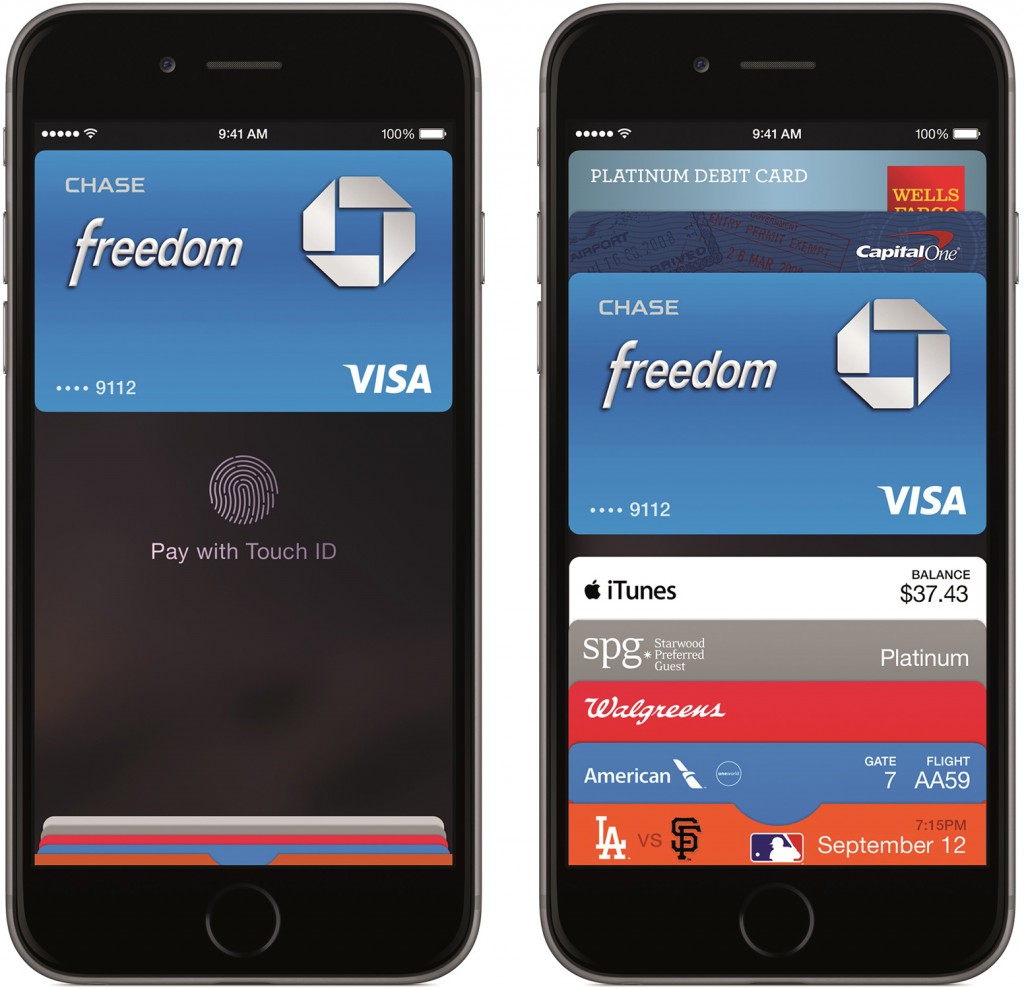Apple on Tuesday introduced its Apple Pay system designed to significantly change the way people make purchases. Apple promises that its system will make payments easier, more secure and more private thanks to the fact that details about actual credit or debit cards will be hidden from personnel who processes payments. If the system takes off, Apple will be able to earn on products sold and made by third parties.
Apple Pay relies on a dedicated chip called the Secure Element that is found inside the company’s iPhone 6, iPhone 6 Plus smartphones as well as Apple Watch. The Apple Pay requires a special NFC antenna found in the aforementioned gadgets; owners of iPhone 5, iPhone 5c and iPhone 5s will also be able to use the technology if they get Apple Watch.
Apple Pay supports credit and debit cards from the three major payment networks, American Express, MasterCard and Visa, issued by popular banks. When a card is added to Apple Pay, the actual card numbers are not stored on the device nor on Apple servers. As an alternative, a unique Device Account Number is assigned, encrypted and securely stored in the Secure Element the iPhone or Apple Watch. Each transaction is authorized with a one-time unique number using the Device Account Number and instead of using the security code from the back of a card, Apple Pay creates a dynamic security code to securely validate each transaction.
“Security and privacy is at the core of Apple Pay. When you’re using Apple Pay in a store, restaurant or other merchant, cashiers will no longer see your name, credit card number or security code, helping to reduce the potential for fraud,” said Eddy Cue, Apple’s senior vice president of internet software and services. “Apple doesn’t collect your purchase history, so we don’t know what you bought, where you bought it or how much you paid for it. And if your iPhone is lost or stolen, you can use Find My iPhone to quickly suspend payments from that device.”
Apple Pay will be supported by leading retailers in the U.S., including Apple, Bloomingdale’s, Disney Store and Walt Disney World Resort, Duane Reade, Macy’s, McDonald’s, Sephora, Staples, Subway, Walgreens and Whole Foods Market. In addition, Apple promises that eventually Apple Pay will also support over 220 thousand merchants in the U.S. that have contactless payment enabled. In addition, Apple Pay will allow users to buy online using their iPhones in select stores. It is unclear when Apple Pay will be available outside the U.S.
Discuss on our Facebook page, HERE.
KitGuru Says: The idea of hiding actual name, credit card number and security code from merchants is clearly not a bad one. However, given the fact that smartphones and watches are stolen pretty often, this also creates new opportunities for thieves, especially keeping in mind that the Touch ID fingerprint readers are not the best fingerprint readers on the market, whereas devices could be hacked. Moreover, without knowing the name of a customer, stores will no longer be able to ensure that their buyer is an owner of the phone too.
 KitGuru KitGuru.net – Tech News | Hardware News | Hardware Reviews | IOS | Mobile | Gaming | Graphics Cards
KitGuru KitGuru.net – Tech News | Hardware News | Hardware Reviews | IOS | Mobile | Gaming | Graphics Cards




China has had this for a while now (Alipay i think it’s called). It’s a great idea, and works well when done properly!
Don’t several companies already do this in the UK? I know that the network EE has an app called Cash On Tap which works with NFC enabled phones and I think Barclays Banking app does something similar